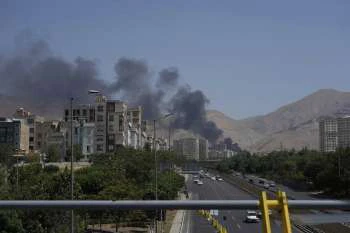India has begun evacuating its citizens, primarily students, from Iran through Armenia, as tensions between Iran and Israel intensify amid a deadly exchange of air strikes.
The first group of about 110 Indian students crossed into Armenia on Monday evening from Urmia, northwest Iran, and are expected to be flown home soon. The evacuation began hours after the Ministry of External Affairs (MEA) announced that the Indian Embassy in Tehran was actively monitoring the security situation and coordinating the safe movement of its citizens within Iran.
- External Affairs Minister S. Jaishankar held talks with his Armenian counterpart, Ararat Mirzoyan, on Sunday to facilitate the evacuation process. “In some cases, students are being relocated with the embassy’s facilitation to safer places within Iran. Other feasible options are also under examination,” the MEA said.
- In Tehran, the Indian Embassy has formally requested Shiraz University of Medical Sciences to assist in moving Indian-origin students out of the city. Students from Shiraz and Isfahan are being relocated to Yazd, while nearly 600 have already been moved to Qom from Tehran, which has faced Israeli air strikes.
- Israel Defense Forces spokesperson Effie Deffrin, in a statement to CNN-News18, assured that Tel Aviv would extend “full cooperation” to ensure the safe evacuation of Indian nationals from Iran.
- The embassy cited a June 15 communication from Iran’s Ministry of Foreign Affairs confirming arrangements for the safe departure of Indian citizens. The embassy has also said it will oversee the students’ movement and security during the evacuation.
- The conflict has already claimed over 224 lives in Iran due to Israeli air strikes, while Iranian missile attacks on Israel early Monday left at least eight people dead.
- There are about 10,000 Indian nationals in Iran, with students making up a significant portion—roughly 6,000. Many of them, particularly from Kashmir, are enrolled in medical and other professional courses.
- Families of these students, especially in Srinagar, have urged Prime Minister Narendra Modi to intervene for their swift and safe return.
- Jaishankar also spoke with UAE’s Deputy Prime Minister and Foreign Minister Sheikh Abdullah bin Zayed Al Nahyan as part of broader diplomatic consultations amid the growing instability in West Asia.
- The conflict has forced most countries in the Middle East to close their airspace. Dozens of airports have stopped all flights or severely reduced operations, leaving tens of thousands of passengers stranded and others unable to flee the conflict or travel home.
- Many students in Tehran are not leaving the hostels where they live, horrified by the attacks, with no idea of when they’ll find safety.
